Let’s dive deep into the benefits of essential oils in poor air quality.
With the recent bushfires, there are so many people that are needing respiratory support. Essential oils are a tool that you can use to help support you and your family.
The health effects of poor and hazardous air quality are real, and already being felt. Bushfire smoke is known to irritate the respiratory system and contains fine particles that can travel deep into the lungs, causing damage. There are many ways to support your health in poor air quality, essential oils being one of them.
The Daily Telegraph Reported on Wednesday 4th Dec 2019 that according to the NSW Department of Health:
‘Residents of NSW are in danger of developing a pack-a-day habit, even if they’ve never smoked a cigarette in their lives. … Sydney’s air quality was so bad on Tuesday it was almost the equivalent of smoking a pack- and-a-half of cigarettes.’
While most healthy people can tolerate temporary exposure air pollution (though it may cause itchy eyes and throat irritation), smoke particles can aggravate existing heart and lung conditions — and put vulnerable people at risk. Arguably the best way to avoid breathing in bushfire smoke is to stay inside with the windows and doors closed though this is not always possible.
I have had a few clients contact me over the last few weeks to ask what they could do to support their health and that of their families as the smoke continues to linger. I’ve been able to support them using essential oils as part of their health care plan.
Let’s dive deeper into the benefits of essential oils in poor air quality.
This is where essential oils and their benefits shine
Essential oils can be the best natural air filtration system in the world. In the basic sense, diffusing essential oils helps your home stay safe from harmful pollutants, virus and bacteria, while providing a wonderful aroma without any chemicals.
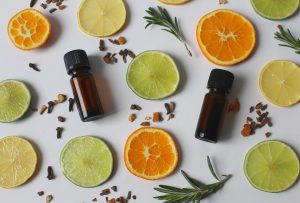
However essential oils provide more than just a pleasant smell.
Essential oils contained in plants are known to be protective and supportive for the plant’s natural defences. Therefore this mechanism of action is mirrored within the human body. This is possible due to the similar cellular structure and function of plant and human cells.
They work the same in our bodies as they do in nature. They penetrate cell membranes and disperse into our blood and tissues. 1 drop contains 40 million trillion molecules that affect the body at the cellular level.
These particles are one of the few things small enough to cross the blood-brain barrier. Their purpose is to help support all of our body systems by keeping our bodies clean and our systems functioning optimally. This is one of the reasons it is so important to use only pure therapeutic grades oils.
The benefits of essential oils are typically achieved through absorption on the skin or through inhalation.
An electric diffuser is a device uniquely designed to dispense essential oils into the atmosphere where they can remain suspended for up to several hours. It is the most effective way to finely vaporize essential oils without harming or altering their valuable properties. Since there is no heat involved in this process, there is no change in the chemical structure of the vital chemical constituents of the essential oil.
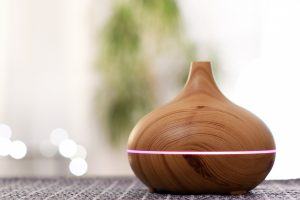
When essential oils are diffused, the molecules are broken up into micro-fine mist particles. These mist particles stay suspended in the air for long periods of time. Not only does this reduce airborne pathogens, pollutants, bacteria, mould and odours in the air, but these micro-mist particles also benefit those who inhale them.
When essential oils are inhaled, it travels through the nasal passage to a receptor neuron that transports it up to the limbic system. The limbic system supports a variety of functions, including emotion, behaviour, motivation, memory and olfaction. For example, if an essential oil has a frequency known to relax or stimulate, the limbic system receives this input and creates neurochemicals that are sent through the body to relax or energize and become more active.
Diffusing essential oils allows you to control the amount of oil you want to diffuse more easily by adding more or less oil depending on how you strong would like it.
What are the most beneficial essential oils in poor air quality?
There are a number of oils that are specific in supporting your body’s ability to detoxify impurities, decrease inflammation and to assist and tone the lungs and sinuses.
These are the essential oils that I recommend when experiencing poor air quality, whether that’s a result of bushfires or when other factors are involved.
Eucalyptus essential oil & Rosemary essential oil
Both contain the compound cineole, camphor and menthol, which help to break up mucus, reduce inflammation and act as a decongestant.
Both are antimicrobial in action supporting the body’s defences.
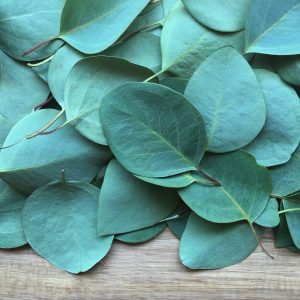
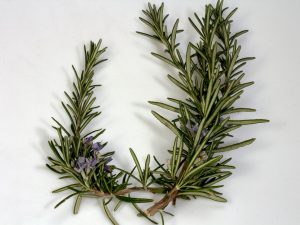
Peppermint essential oil
Menthol is an extract of peppermint. When inhaled, it creates a cooling sensation that can soothe or numb a scratchy throat and can help to relax the bronchial muscles, therefore, assisting in breathing.
Peppermint contains antimicrobial properties and can act as an analgesic when applied topically.
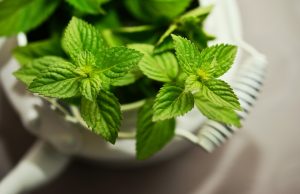
Tea Tree essential oil
Highly regarded as an anti-microbial, and antiseptic oil containing high level of terpenes.
Cleansing and purifying actions.
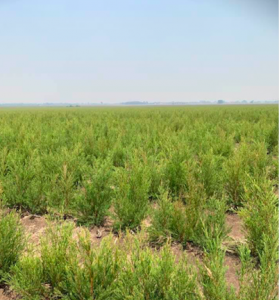
Lemongrass and Citronella Essential Oil
Containing the active constituents of geraniol, a strong antioxidant and anti-inflammatory as well as limonene, a strong anti-tumour that specifically acts to tone the lungs.
Both oils support lymphatic flow hence supporting elimination channels.
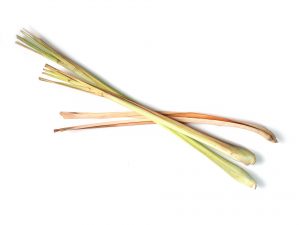
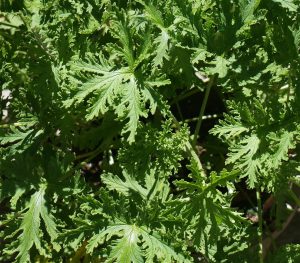
Myrtle essential oil
A lung and sinus soothing decongestant, containing menthol.
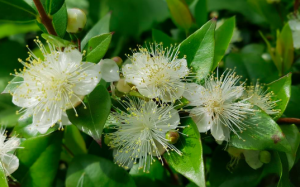
Pine essential oil
Strong antiseptic qualities due to the constituent of pinene specifically indicated in throat, lung and sinus infections.
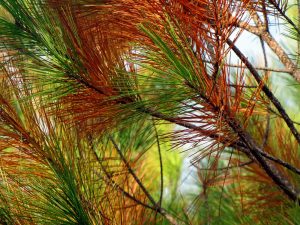
Cypress essential oil
Regarded as an antioxidant and antiseptic as it contains Limonene and pinene.
Assists in respiration.
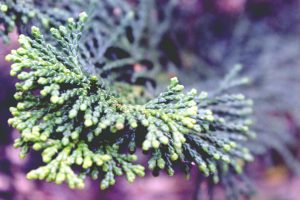
Lavender essential oil
What doesn’t Lavender oil do? It is commonly known as a relaxant, however, is a great antiseptic, anti-inflammatory and supportive in respiratory infections.
By no means is this list exhaustive, however, it is a good start.
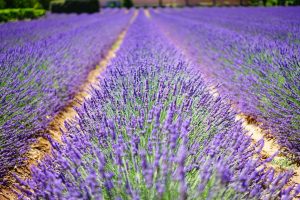
Which essential oil company do you recommend?
This is a very good question, one would think that if a bottle states it is an essential oil then it is just that. However, the sad fact is this is not necessarily the truth in some cases
Unlike the herbal medicine industry, which is highly regulated and, is required to stipulate the percentage of the active constituents and the type, this is not mirrored in the essential oil industry. Both are and can be powerful medicines. I know this to be true, as I have made a career out of it, educated many and experienced it first hand. So in saying this if you want to get the highest therapeutic benefit from your essential oils, you need to do your homework and find a company that 100% guarantees the quality and efficacy of their products.
This might sound controversial to some however after years of research and personal use there is only one company that I would stand behind when it comes to essential oils. The only exception to this would be if I were to grow and distil my own.
So what’s the company I hear you ask?
Young Living.
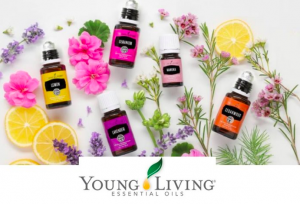
Young Living grows plants from seed where they grow best. Planting at the right altitude, in the right climate in rich organic soil without any chemicals or pesticides to ensure that the plant has a maximum therapeutic profile even before it is distilled.
Young Living prides itself on being an Essential Oil company that is not simply a ‘rebottler’ of oils.
What makes Young Living different is that they strive to make plants and people at the centre of every process. Instead of simply outsourcing, Young Living go that extra mile and have spent 25 years researching, innovating, planting and ethically sourcing plant materials for their products as well as building schools, villages and re-establishing reforest throughout the world.
They are stewards of the land and have been reviving ancient farming practices through farm ownership, exclusive partnerships with farmers and having seed to seal certified farms all over the world.
These strict ‘Seed to Seal guidelines ensure that farmers respect the earth’s delicate ecosystem by resting the soil and not overproducing just because of market demand.
This is particularly important in those developing nations that are in need of long-term solutions rather than short-term gains.
For an industry that has an expected growth of 13 billion US dollars by the year, 2024 Young Living has the history, heart and foresight to invest in sustainable infrastructure that does not cost the earth.
I encourage you to take a few minutes to learn more about the ‘Seed to Seal’ promise.
Knowing where your products come from and how they are produced is an important part of being a conscious consumer.

If you want to learn more about how to integrate essential oils into your life and are keen discover what Young Living has to offer please do get in contact with me or reach out the person who shared this article with you and experience first hand the health benefits they afford. Please email me at hello@thewholisticlife.com.au if you have any questions or would like to make an appointment.
There you have it, the benefits of essential oils in poor air quality. The Young Living oils I highly recommend that contain the above-mentioned essential oils in combination are Purification and R.C – an absolute must to diffuse in these smoky and poor air quality conditions.
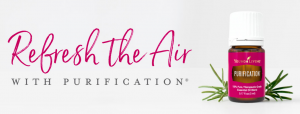
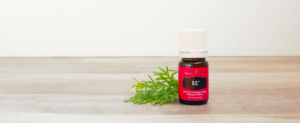
In health and wellness
Kristy xx


Thank you Kristy, a timely article indeed. I would love to know more about the oils and get myself a diffuser as quick as possible.